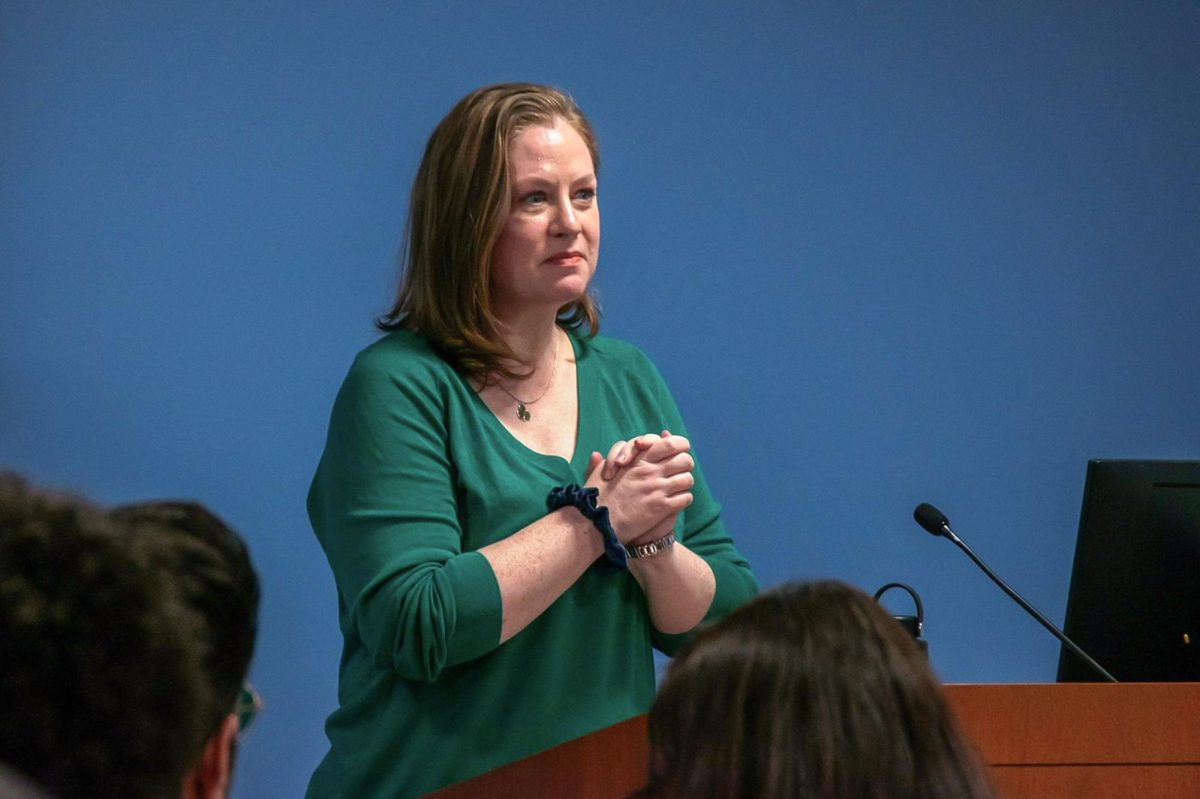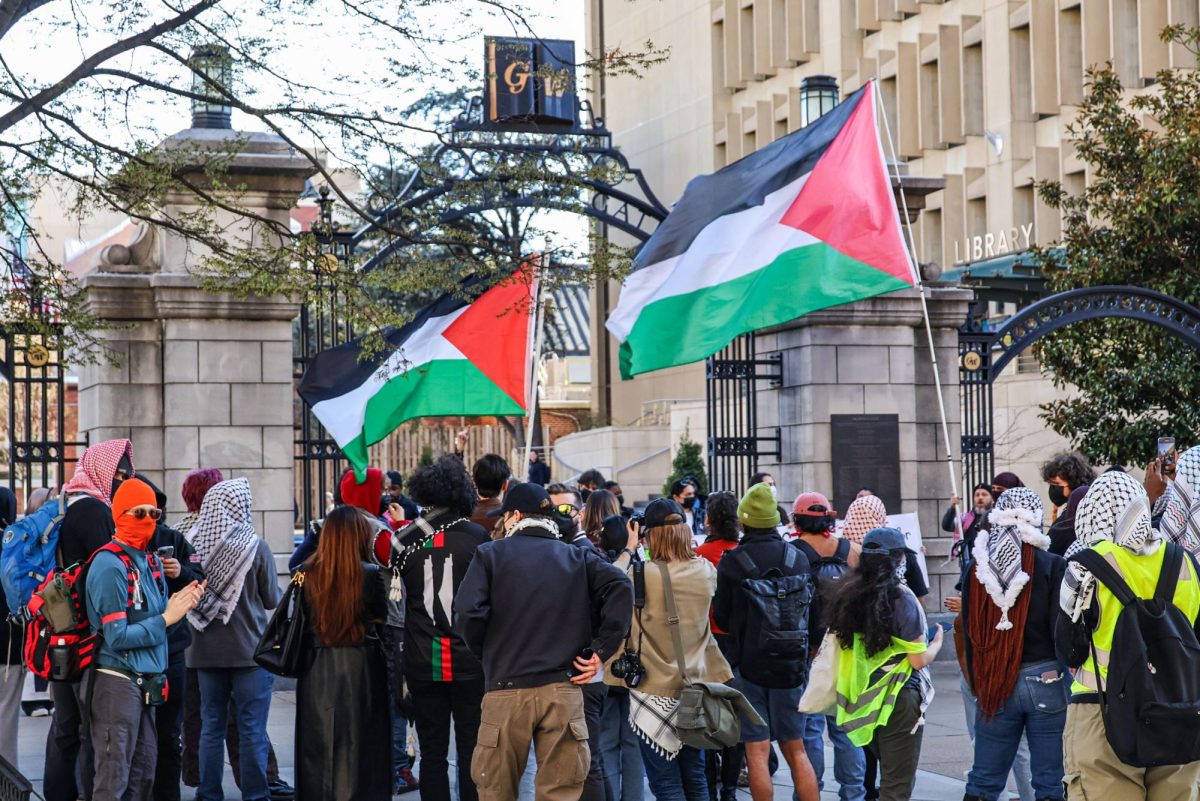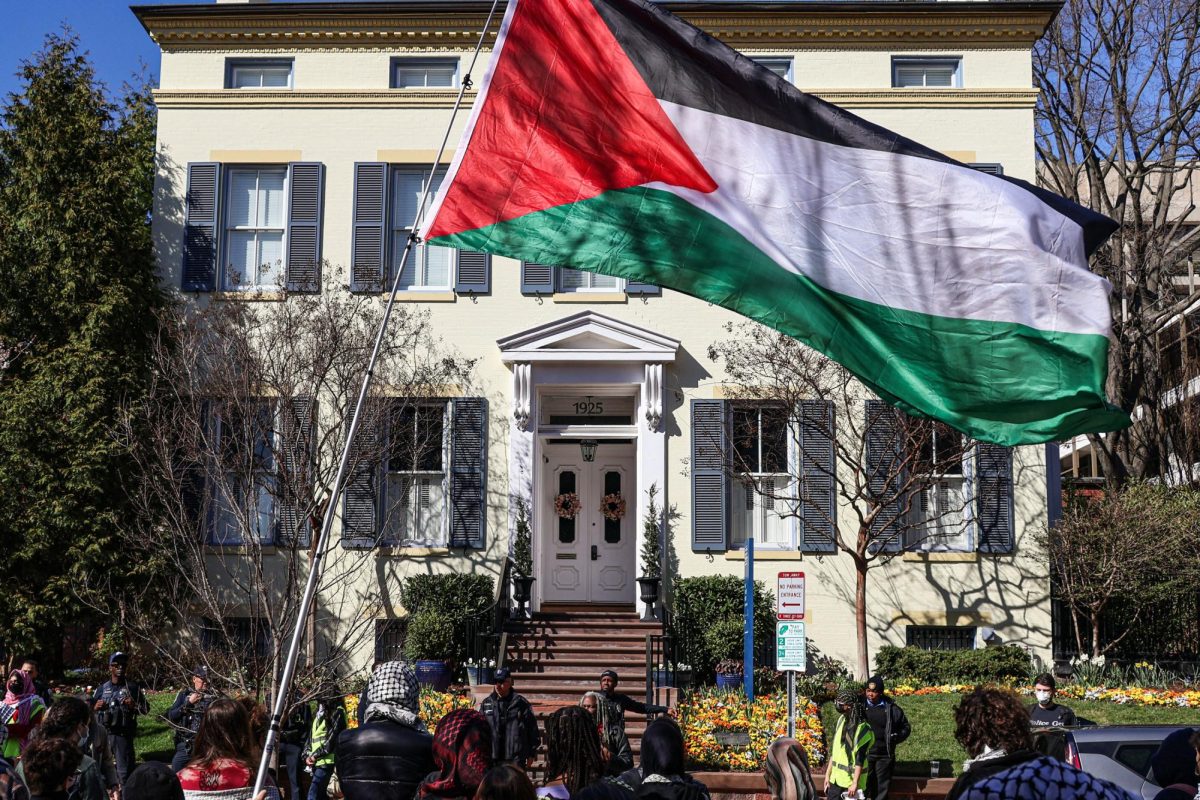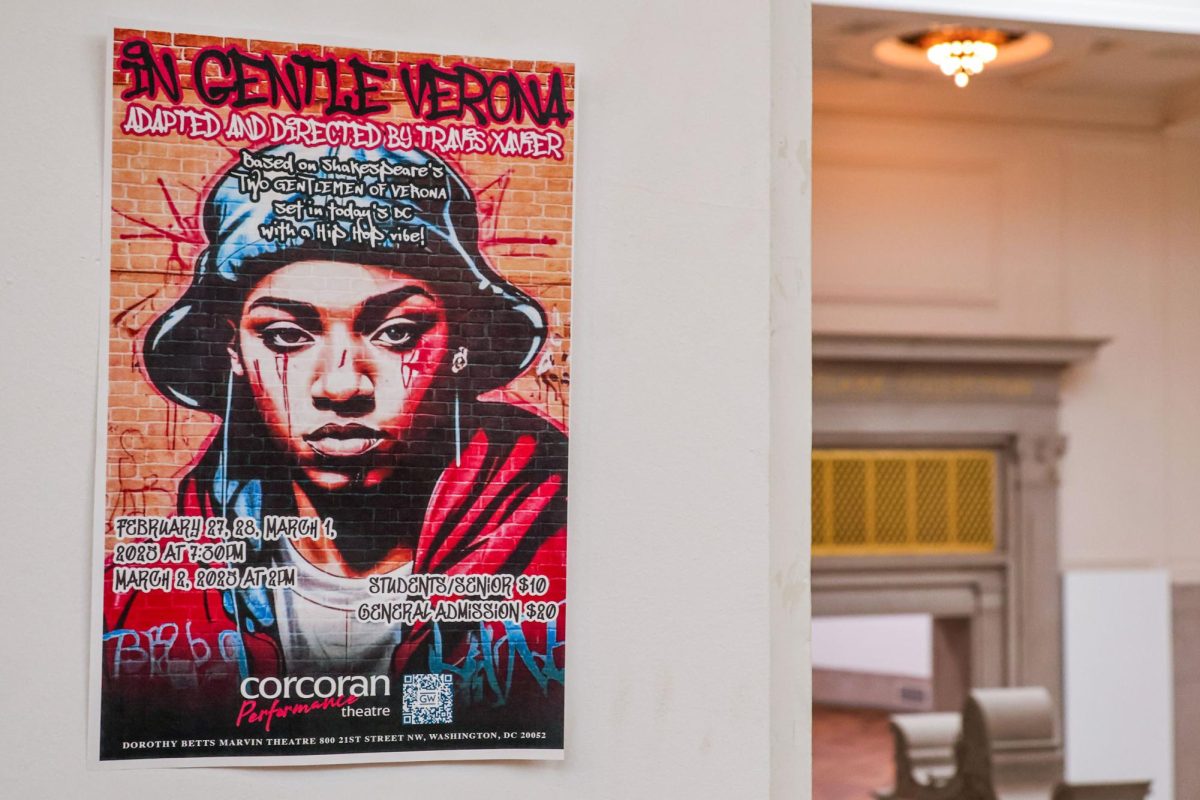The Department of Education’s Office for Civil Rights opened an investigation Wednesday into a Palestinian rights organization complaint, alleging GW discriminated against Palestinian students.
Palestine Legal — which filed a complaint on behalf of three students with the OCR in February — alleges GW denied access to mental health services for Palestinian students or students perceived to be Palestinian, falsely accused them of committing crimes and held “months-long” disciplinary processes for crimes that other students admitted they committed. Palestine Legal also alleges campus police disproportionately investigated the students and that they were subjected to “racist anti-Palestinian” comments that violate Title VI of the 1964 Civil Rights Act.
A Palestine Legal release states it is the OCR’s first public investigation into anti-Palestinian racism.
“This is an important step that shows OCR is taking anti-Palestinian discrimination seriously,” Palestine Legal senior staff attorney Radhika Sainath states in the release. “Even if pro-Israel groups don’t like it and complain, the law is clear – Palestinian students are entitled to the same educational opportunities and services as other students.”
University spokesperson Julia Metjian said officials are “in receipt of the request for information” from the Department of Education and will respond to the inquiry. Metjian declined to say when the OCR notified the University of their investigation, if officials have communicated with the OCR about the investigation, what the University’s response is to the investigation or how the University will work with the OCR as they conduct the investigation.
The OCR did not immediately return a request for comment.
The complaint lists several instances where the University allegedly discriminated against Palestinian students and students perceived to be Palestinian, including the reported cancellation of mental health services for Palestinian students provided through the Office of Advocacy and Support during a period of heightened violence in Palestine in spring 2021, according to the release.
The release also states that officials falsely accused Students for Justice in Palestine and its president of vandalism for wheat pasting posters — a process of hanging posters with a mixture of starch and water — on property outside the GW Hillel building during an event featuring a former Israeli Defense Forces intelligence commander in October. Officials cleared both SJP and its president of disciplinary charges for the vandalism in January and members from Jewish Voice for Peace claimed responsibility.
The complaint alleges students made anti-Palestinian statements after Lara Sheehi, an assistant professor of clinical psychology, invited a Palestinian Hebrew University professor to speak at an Professional Psychology Program event in September, the release states. The OCR opened an investigation into allegations of antisemitism in Sheehi’s course last month, just two weeks after a GW-hired law firm announced it found “no evidence” of discrimination in the class.
“GW has failed to take any action to support Palestinians and others in its community affected by these racist comments,” the release states.
Danya Zituni, the communications manager for Palestine Legal, said the complaint aims to ensure the University complies with Title VI of the Civil Rights Act and that officials reopen mental health services for Palestinian community members and reject a “politicized” definition of antisemitism that would “censure” Palestinian rights advocates.
“It’s unlawful to deny services and the same opportunities to Palestinian students that are given to other students, so I think this is a really, really important and major development that we’re really happy with,” Zituni said.
Zituni said the investigation is a “major” development for Palestinian student rights and speaks to a “larger systematic issue at play.” She said she hopes the investigation will send a “clear message” to other universities that it is unlawful to deny services to Palestinian students.
“We see this as a really important step forward for fighting this systematic issue of censorship and punishment of Palestine advocacy across campuses,” Zituni said.











